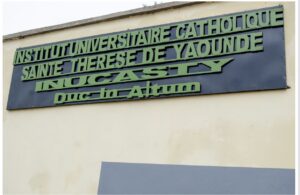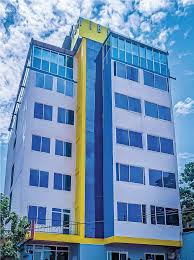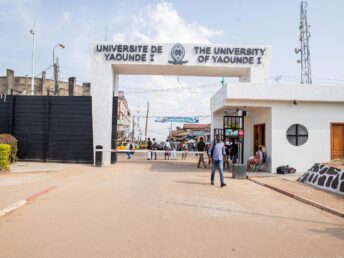If you are thinking about continuing your education in Cameroon, you have taken a very important step. Choosing the right university in Cameroon matters a lot. It will shape not only your studies, but also your future work, your friendships, and how you grow.
You might wonder: what is the difference between public and private universities here? Are they the same? Which one gives the best value for you? The cost, the quality, the learning environment—these all can be different. Understanding those differences helps you make a smart decision, one that fits your needs, goals, and budget.
In this article, you will learn clearly what sets public and private institutions apart in Cameroon. You will see their strengths and challenges, so you can choose what works best for you. By the end, you will feel more confident about where to apply, and what questions to ask before enrolling. Let’s walk through the facts about universities in Cameroon together.

Since gaining independence, education in Cameroon has grown significantly. At first, there were very few universities, and most higher education took place under one big public university. Over time, the government saw more and more young people wanting to study after high school. In response, they created more universities, more faculties, and expanded programs. Public universities started in major cities (Yaoundé, Douala, Buea, etc.), and later private institutions joined to meet demand.
Today, the higher education system in Cameroon includes public universities (run by the state) and private universities (run by non-state bodies: churches, religious groups, individuals, or private organizations). Both play important roles. The public ones handle large numbers of students, offering many programs and specialties. Private ones often provide new or flexible options, sometimes focusing on more specialized or career-oriented programs, newer facilities, or different teaching styles. Together, they try to serve the many Cameroonians who want university education. Understanding how both work will help you choose the right path.
What Are Public Universities in Cameroon?
Public universities in Cameroon are institutions funded and governed mainly by the government (through the Ministry of Higher Education, known as MINESUP). They are state-owned and exist to serve the public interest. They have mandates for both teaching and research and are usually large institutions.
Funding for public universities comes from the national budget. The government pays for many costs—staff salaries, infrastructure (though sometimes insufficient), and some operating expenses. Students often pay a registration fee, but tuition fees are much lower compared to private universities, especially for state-funded programs.
Examples:
- University of Yaoundé I (located in Yaoundé) is one of the oldest public universities.
- University of Buea (South-West Region), which follows the Anglo-Saxon system and often is praised for quality of teaching.
- University of Douala (Littoral Region) is another major public university serving many students.

Advantages:
- Affordable tuition/low cost: Because much of the cost is subsidized by the government, students often pay much less.
- Wide recognition: Degrees from public universities are generally well recognized both within Cameroon and internationally. Having been established longer, they have track record.
- Larger campuses, many programs: Public universities often offer many degree programs (arts, sciences, engineering, medicine, etc.), have bigger student bodies, more faculties, and a variety of resources.
Challenges:
- Overcrowding: Large number of students in lecture halls, sometimes class sizes are huge. This can make personal attention from professors difficult.
- Limited or aging facilities: Some campuses struggle with infrastructure: libraries, labs, classrooms may be worn out or insufficient.
- Slow administrative processes: Since public universities are large and bureaucratic, administrative tasks (registration, getting records, approvals) sometimes take more time.
What Are Private Universities in Cameroon?
Private universities are institutions not fully run by the government. They may be owned by religious organizations, private bodies, individuals, or non-profit associations. They often have more autonomy in how they are managed, in curricula, or in facilities.

Ownership:
- Some are church-based (for example Catholic or Protestant institutions).
- Others are founded by non-religious private organizations or foreign partnerships.
- Some may also be affiliated or “mentored” by public universities to ensure quality or degree recognition.
Examples:
- Catholic University of Central Africa (UCAC), in Yaoundé, is a private Roman Catholic university, with several faculties including theology, social sciences, technology.
- Saint Monica University (SMU), based in Buea, is a private American-style university offering bachelor’s and master’s programs, and has accreditation from Cameroon’s Ministry of Higher Education.
- ICT University, which runs on-site and online programs, is another example of private higher education in Cameroon.
Also read about: Ultimate guide to YIBS University of Bamenda Partnership

Advantages:
- Flexible learning systems: Private universities may offer more flexible schedules, online options, internships or partnerships that help students learn practical skills.
- Smaller class sizes: Often the number of students per class is lower, meaning more personal attention, more interaction with lecturers.
- Modern infrastructure: Many private universities invest in newer facilities, better labs, technology, comfortable lecture rooms, sometimes residential halls.
Challenges:
- Higher tuition fees: Because private universities depend more on student fees, costs tend to be significantly higher than in public institutions. This makes them less accessible for some students.
- Recognition issues if not fully accredited: Some private institutions may not have full accreditation or mentorship; this can affect whether their degree is accepted locally or internationally. Students must check accreditation carefully.
- Limited range of programs: While this is improving, some private universities may not offer every type of academic field (for example, certain specialized science or professional programs).

Key Differences Between Private and Public Universities in Cameroon
Here are clear differences between public and private universities in Cameroon. Read through to see which fits you better.
- Tuition Fees
Public universities are much more affordable. For example, some public universities charge registration fees of about 50,000 CFA. Private universities are more expensive because they depend on tuition and other fees to run their programs. - Recognition
Degrees from public universities are widely accepted in Cameroon and abroad. Private universities can also be recognized, but it depends on whether they are accredited by MINESUP and have good reputation. - Facilities
Public universities often have aging or overused facilities due to high number of students. Some classrooms or labs may be crowded. Private institutions tend to have newer or more modern facilities, and can offer more personalized learning spaces. - Admission Process
Public universities usually have very competitive admission: strict requirements, entrance exams, waiting lists. Private universities may offer more flexible admission policies, sometimes with additional or alternative requirements, or more frequent intake periods. - Class Size
At public universities, many students share large lecture halls; personal attention is harder to get. Private universities tend to have smaller classes, which give you more chances to ask questions, interact with lecturers, and get support.

Factors to Consider When Choosing a University in Cameroon
When you decide between private and public universities, think about these factors. They will help you choose the one that matches your needs and goals.
- Accreditation and Recognition
Make sure the university is officially approved by the Ministry of Higher Education (MINESUP). Check that it's listed among accredited institutions. If you want to study or work abroad later, verify if the degree will be recognized internationally. - Tuition Fees and Financial Planning
Consider not just tuition, but all costs: registration, textbooks, transport, living expenses. Public universities often have lower fees, private ones higher. But private may also have scholarships or payment plans. - Quality of Programs Offered
Look at how good the teaching staff are, whether labs or equipment are up to date, whether you’ll get practical experience or internships. Some private universities are very strong in certain fields. - Location and Accessibility
Think about how far the campus is, how easy it is to get there, whether you’ll need to live on campus or commute, cost of travel. Also consider safety, availability of amenities. - Career Opportunities and Networking
Does the university have good links to employers? Are there chances for internships, workshops, career services? Strong networks (alumni, partnerships) can help after graduation. - Personal Learning Style
Reflect on how you learn best: in large groups with lectures, or in smaller settings where you can interact more? Do you prefer more independence or more guidance? This can guide whether a private or public setting will suit your style.

Which is Better: Private or Public University?
Deciding which type of university is better depends mainly on your goals. What you plan to do after school, how much you can afford, and what kind of learning environment you prefer all matter.
- If your goal is to get a degree that is widely recognized, possibly study or work abroad, and you want lower tuition, a public university may suit you.
- If your goal is more specialized training, smaller classes, modern facilities, or flexibility (online courses, career-oriented programs), a private university might be better.
You should match career goals and budget carefully:
- Look at what you want to study and what job you hope to have later. Some programs (like engineering, health, ICT) need strong labs or connections to industry—private universities sometimes invest more in these.
- At the same time, check what you can afford—not just tuition, but all costs (housing, travel, books). Don’t stretch too far financially.
Both public and private universities play important roles in Cameroon’s education system. Public ones serve many students, offer many programs, and often help keep higher education more accessible. Private universities often push innovation, provide new alternatives, help reduce pressure on public institutions, and sometimes respond faster to demands of the job market.
So, choosing what is “better” for you means balancing your aims, resources, and what each type of university can offer.
Also read on Ultimate Guide For 11 Best Cameroon Universities
In the end, the decision between a public or private university is a personal choice. What works well for someone else may not be the best for you.
Make sure you do your research: check accreditation, program quality, costs, location, and how the university supports students after graduation. Talk to students, visit campuses if possible, and compare what different universities offer.
Whether you choose a public or private institution, what matters most is your commitment to your studies. If you work hard, stay focused, use opportunities well, you can succeed in either setting. contact the BigManSchools.Com team today for a more guided and oriented proposal for studying in the best universities in Cameroon!







